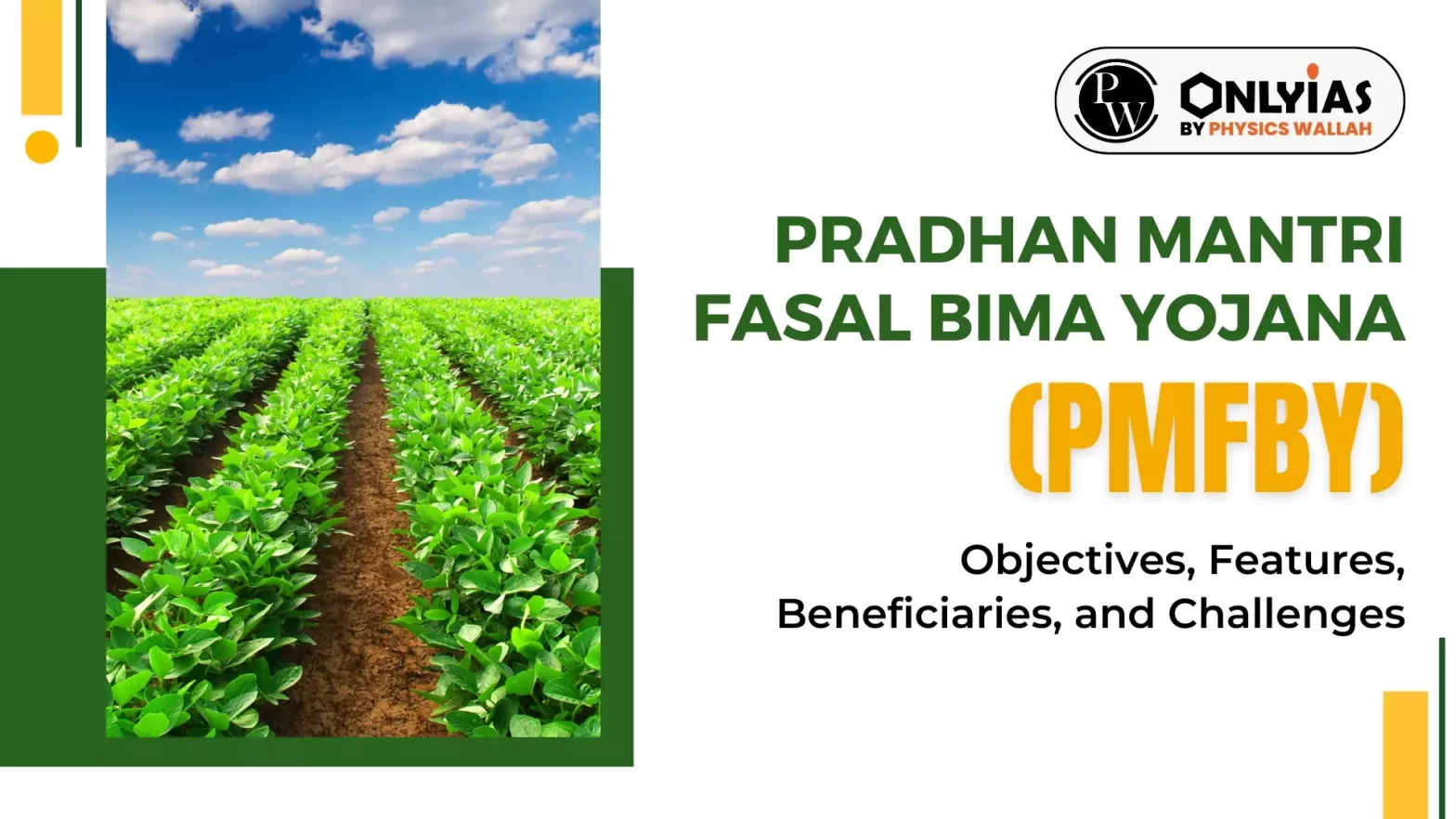According to Ministry of Agriculture and Farmers Welfare, enrolment under Pradhan Mantri Fasal Bima Yojana (PMFBY) has increased by 27 percent in financial year 2023-24 so far.

Context: According to the Ministry of Agriculture and Farmers Welfare, enrolment under Pradhan Mantri Fasal Bima Yojana (PMFBY) has increased by 27 percent in the financial year 2023-24 so far.
| Example |
| For instance, if a farmer has insured one hectare of land with a sum insured of Rs. 35,000, the insurance companies would typically charge an actuarial premium of Rs. 4,000. In this scenario, if the farmer cultivates Kharif crops on the insured land, their responsibility is only to contribute 2% of the actuarial premium, which amounts to Rs. 800. The remaining Rs. 1,600 is jointly covered by the state and central governments. |
| Categories | Description |
| Loanee Farmers |
|
| Non-Loanee Farmers |
|
| Must Read | |
| NCERT Notes For UPSC | UPSC Daily Current Affairs |
| UPSC Blogs | UPSC Daily Editorials |
| Daily Current Affairs Quiz | Daily Main Answer Writing |
| UPSC Mains Previous Year Papers | UPSC Test Series 2024 |
Pradhan Mantri Fasal Bima Yojana (PMFBY) is a crop insurance scheme launched in 2016 to provide cost-effective insurance coverage to farmers against crop failure, damage, and losses.
PMFBY replaced the Modified National Agricultural Insurance Scheme (MNAIS), Weather-based Crop Insurance Scheme, and National Agricultural Insurance Scheme (NAIS).
Pradhan Mantri Fasal Bima Yojana is administered by the Department of Agriculture, Cooperation and Farmers' Welfare along with empanelled general insurance companies.
PMFBY aims to provide extensive crop insurance coverage, stabilize farmers' income, promote sustainable agriculture, facilitate credit access, encourage modern farming practices, foster competition, and protect farmers from production risks.
Pradhan Mantri Fasal Bima Yojana (PMFBY) covers various stages of the crop production cycle, including sowing, growth, harvest, and protection against calamities, for a wide range of crops.
Farmers contribute a small portion of actuarial premiums, with rates varying by crop type, while most of the premium is shared equally by the state and central governments.
All farmers growing notified crops in designated areas, including sharecroppers and tenant farmers, are eligible for coverage if they have insurable interest in the crops.
Loanee farmers are those who have taken crop loans for agricultural operations, while non-loanee farmers are those who have not taken such loans.
Yes, non-loanee farmers can voluntarily enroll in PMFBY to mitigate risk and claim insurance benefits.
Eighteen insurance companies participate in Pradhan Mantri Fasal Bima Yojana (PMFBY), including Agriculture Insurance Company, Bajaj Allianz, ICICI Lombard, and others, selected through a bidding process.

<div class="new-fform">
</div>